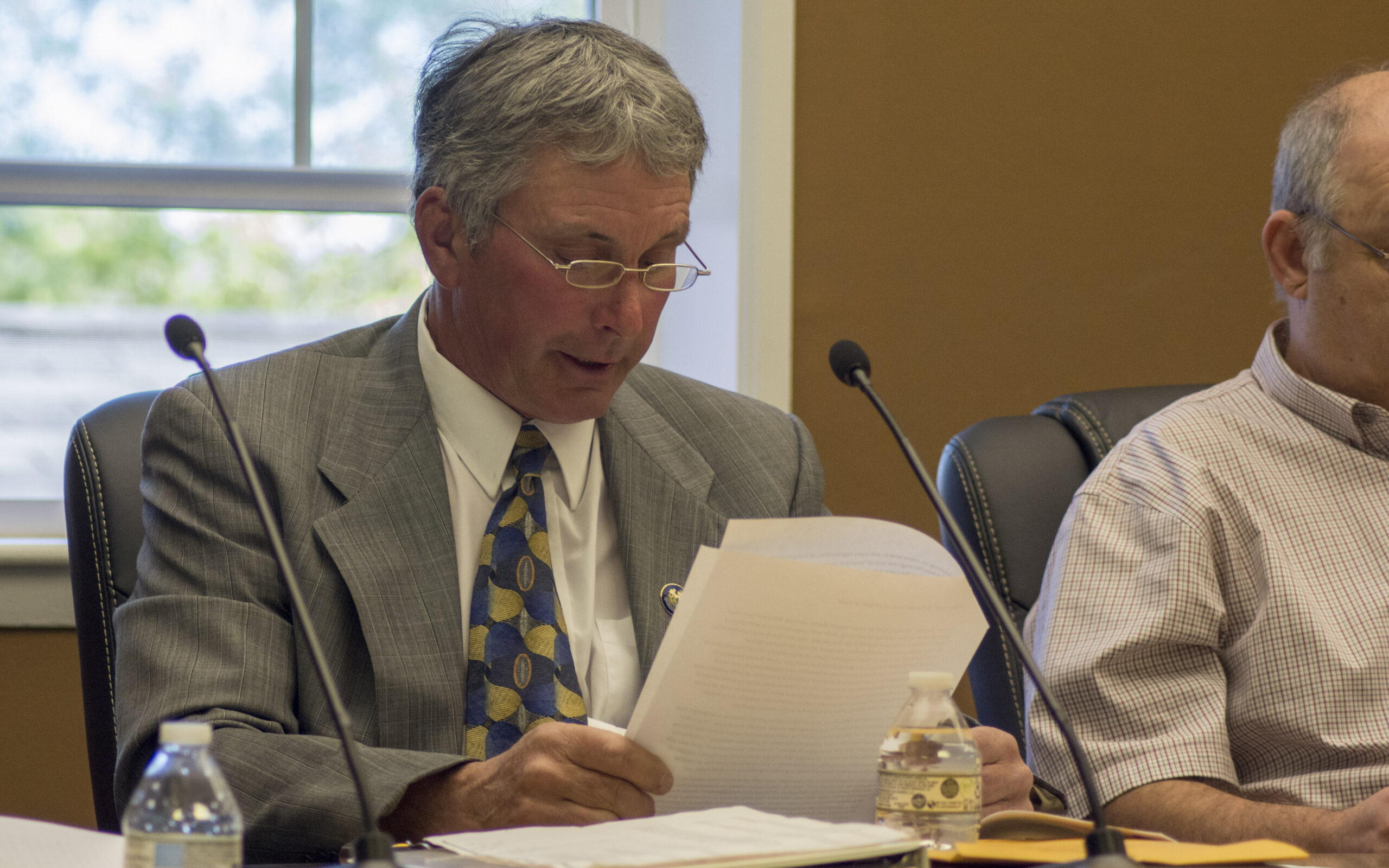
CARIBOU, Maine — Caribou City Councilors had a lively discussion about economic development, and what that term means, during a May 29 meeting.
City Manager Dennis Marker introduced the item for general discussion, and as a result no votes or decisions were made by councilors. Marker began by providing a graphic and explaining the term as he understands it.
The graphic, which was shown on a projector in the council chambers, depicted a tank of money with spouts on the bottom-left and the bottom-right, in addition to two arrows on either side of the top indicating that funds were being added. The spouts, or ways in which money can leave the community, were divided into two categories, purchases from local residents and purchases from non local residents. Likewise, the two arrows above the tank represented money going in locally and from elsewhere.
Marker said that when area residents make purchases the funds are basically recirculating locally, by going in and out of the tank over and over. For funds in the tank to grow, it has to come from outside the area.
It is nevertheless very important for city residents to shop locally to keep the money circulating in the tank.
“There are a lot of different ways to get money into a local economy,” he said. “Historically, there has been a focus on, ‘When do we get the next store?’ or focusing on jobs. Those are two aspects of economic development that certainly have potential to bring money in.”
The city manager then asked councilors if they had any suggestions or items they wished to discuss related to economic development in the community.
Mayor David Martin said that, in looking at Marker’s graphic, the one aspect citizens of Caribou can control the most is buying locally.
“Maybe we should encourage more people to buy local,” he said. “Maybe we should have some signs out that say, ‘If you can buy it here and it’s a dollar more than Presque Isle, you’re still saving money,’ something like that.”
Councilor Mark Goughan read a prepared statement that he said was written when the city manager’s position came under review. The councilor said he was not aware that 50 percent of the manager’s time was dedicated to economic development, and felt his definition of economic development did not align with Marker’s.
“I didn’t feel it was fair for me to judge his position,” Goughan explained, “because my definition was different than what he was hired for.”
In his statement, Goughan said he was impressed during the candidate forum when essentially everyone running agreed that “we have to do a better job growing our community,” which he took to mean as improvements in both population and the private sector.
He added that economic development, in his opinion, is “one of the most misused phrases in local government.”
“Ask any 10 people to define economic development and you’ll get 10 different answers,” he said.
Goughan said that with multiple boards and organizations working toward the singular goal of economic development, it would be worthwhile to establish a universal definition to more efficiently achieve long-term goals.
“My opinion is that Caribou, and all of Aroostook County, is failing in creating positive growth,” he said. Economic development must be thoroughly defined; it must be measurable to not only achieve results, but to learn from past mistakes.”
Goughan suggested that the city manager “take one business man or woman” out to dinner once a month to help build relationships with “people already in this community paying taxes.”
Martin asked Goughan if he had a definition of economic development.
“I just would like to hear what other councilors think,” he said, adding that he is wondering if, during the next city council meeting, councilors could brainstorm and determine a concrete definition of the term, along with measurable metrics.
Martin agreed, and Marker said this discussion would work well for a council work session.
“We could banter, pull out charts, and bring up some ideas,” Marker said. “It’s such a multi-faceted [concept].”
The mayor suggested communicating with city boards and organizations to understand their definition, and to potentially invite them to the workshop.
“It would be nice to have one common goal,” he said.







